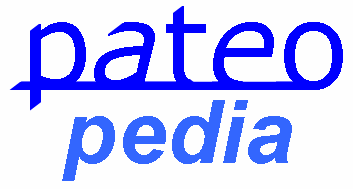


 |
 |
 |

The subtitle of the 7-part documentary series titled “Betrayal” is “the auto-immune disease solution they are not telling you”. In this series, Doctor of Chiropractic Thomas O’Bryan (also a Certified Clinical Nutritionist and a Diplomate of the USA Clinical Board of Nutrition) enables 85 leading experts around the world to share their ground-breaking insights, that will help people to turn their lives around for the better. This series shows the fundamental differences between Allopathic Medicine on the one hand, which focuses on (pharmaceutical-based) disease symptom management, and Functional Medicine on the other hand, which focuses on interactive individual root cause analysis. If the immune system is part of the “problem”, then the conventional approach by mainstream Allopathic Medicine is making this problem only worse. In that case, only Functional Medicine can help to fully restore health.
This documentary series is directed by investigative journalist Jonathan Otto.
A few dietary recommendations by Tom O’Bryan are summarized below.
Polyphenols are micronutrients found in the bright colors in fruits and vegetables and have are incredibly beneficial to the microbiome. You may have heard of resveratrol, found in red wine, and the benefits of dark chocolate or green tea. It are the polyphenols that provide much of these foods’ health benefits. Polyphenols occur within a diverse class of plants and are associated with strong-colored fruits (like berries) and vegetables (like red tomatoes). Fruits and vegetables that are high in polyphenols have the same dark color throughout. While eggplants have a nice, dark skin, the flesh is white, so it is not a high polyphenol choice. A better choice would be dark, leafy greens like spinach or kale.
You can add polyphenols into your diet every day in several ways including salads filled with greens and crunchy, colorful cruciferous vegetables. It is the insoluble fiber in these vegetables that the bacteria thrive on that promote being lean and healthy. Other foods high in polyphenols can be eaten every day, but in moderation, including fresh garlic, fresh raw almonds, and 70 percent or higher dark chocolate. Cocoa has been shown to influence the microbiome toward a more health-promoting profile by increasing the relative abundance of good bacteria. What is more, chocolate is thought to modify intestinal immune status, lowering the expression of Immunoglobulin A antibodies.
Avoid processed carbohydrates that feed bad bacteria, which are in chips, French fries, breads, white rice, cookies, crackers, desserts, and products that contain added, unnatural, refined sugars. These foods put your body in a chronically hungry, metabolically damaged, fat-storing mode. Eating them can increase your risk of intestinal permeability and may alter the makeup of your microbiome, upsetting the balance between friendly and unfriendly bacteria. However, eating good carbohydrates can actually reduce obesity by increasing beneficial bacteria. Furthermore, carbohydrates containing artificial sweeteners promote unhealthy gut bacteria that cause obesity.
When you eat healthy fats, including the fats found in avocados, olive oil, coconut oil, and nuts, there is no evidence of lipid raft transcytosis, which is responsible for moving lipopolysaccharides into the bloodstream.
A hundred years ago, people thought yogurt was healthy, but they were not exactly sure why. We now know that it is because of the fermentation of the bacteria in milk: Every time you eat yogurt, you get a dose of good bacteria.
This webpage was originally created on 2019 October 28 by Johan Oldenkamp.
© Pateo.NL : This page was last updated on 2019/10/28.